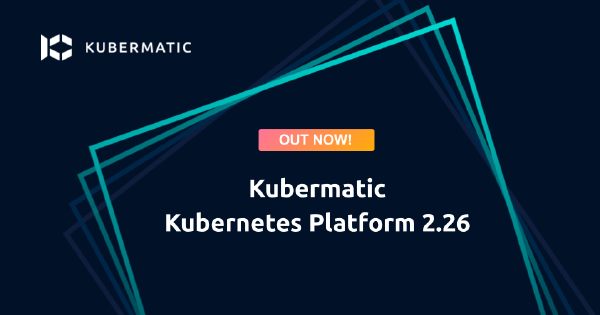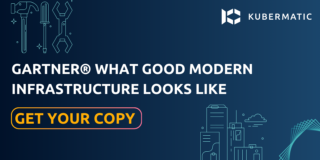


The Smallest Kubernetes Cluster: Scaling Down to the Edge
Edge computing is creating a new internet. In an age where consumers and businesses demand the shortest possible delay between asking a question and getting an answer, edge computing is the only way to reduce the time it takes to provide this insight.

Keeping the State of Apps 1: Introduction to Volume and volumeMounts
In this part of our Kubernetes 101 series, we will bring persistence into play. You will learn how to provide persistent storage in the form of different volumes to the Pods.

Kubermatic Kubernetes Platform 2.16 Is Here!
Here we go, our first release of the year is out! With Kubermatic Kubernetes Platform (KKP) 2.16, we now support the Open Policy Agent for improved policy control and have added dynamic data centers and other expanded GitOps capabilities. On top of that, with Machine Learning being one of the …

Support for CoreOS Container Linux Has Ended
Since May 2020 CoreOS Container Linux is end of life and no longer receives updates. With the upcoming Kubermatic Kubernetes Platform (KKP) 2.16 release, we will no longer support CoreOS Container Linux. In case you still have CoreOS clusters running, you risk to encounter major security liability …

Kubernetes on Hetzner with Kubermatic KubeOne in 2021
Guest post by Christian Rebischke, SRE at avency GmbH
Christian has bootstrapped a Kubernetes cluster on Hetzner cloud with our open source cluster lifecycle management tool Kubermatic KubeOne. We are happy to have him sharing his experience on our blog.
Hello and welcome to my little Kubernetes on …

Exposing Apps With Services
In this guide, we will discuss how to expose an application to the outside world via Services. We will cover five different types of Services and their usage. Basic knowledge of Pod and Deployment is suggested to follow the hands-on practice on this part of the series.
Services in Kubernetes A …

Joining Forces With Darumatic to Empower DevOps Teams Across Clouds
Today, we are excited to announce a strategic partnership with Darumatic, the go to DevOps consultancy in Australia/Oceania. The partnership empowers DevOps teams to scale their organization across private and public clouds. By combining Darumatic’s strong footprint in Australia with our leading …

Quick and Easy Kubernetes Deployments With KubeOne
Following our first blog post of the Getting Started with Kubermatic Kubernetes Platform webinar series, this second part continues on the path of showing you how to use KKP to automate your Kubernetes operations at scale.
Specifically, we will show you how Kubermatic KubeOne fits into the KKP …

Rego in a Nutshell
In earlier articles from this series, we have demonstrated how to use Open Policy Agent (OPA) with Kubermatic Kubernetes Platform. Open Policy Agent uses its own native language, Rego, to define queries. This tutorial presents an overview of the main features of Rego which will allow you to …

Getting Started With Kubermatic Kubernetes Platform Part 1
The “old world” of IT operations used to entail high maintenace effort, costly downtimes, vendor lock-in, and developers waiting for their tickets to be processed. Enter: Kubermatic Kubernetes Platform. We saw the need for IT operations to be automated and infrastructure to be more scalable and …

Setting up OIDC Authentication & Audit Logging With Kubermatic KubeOne
In this article we’re going to set up a Kubernetes cluster with OIDC authentication and audit logging enabled. We prefer to manage our team associations via GitHub Teams and we want to grant permissions inside the cluster based on these teams, so we will use Dex as a bridge between Kubernetes …

Run Amazon EKS Distro With Kubermatic KubeOne
Today Amazon announced Amazon EKS Distro (EKS-D), a Kubernetes distribution based on and used by Amazon EKS. Amazon EKS Distro enables you, as an infrastructure responsible, to create reliable and secure Kubernetes clusters using the same versions of Kubernetes and its dependencies deployed by …
